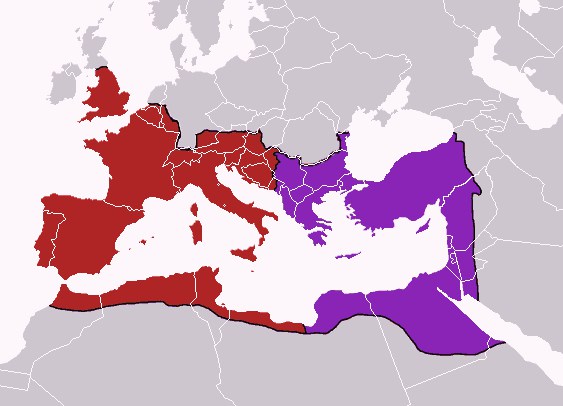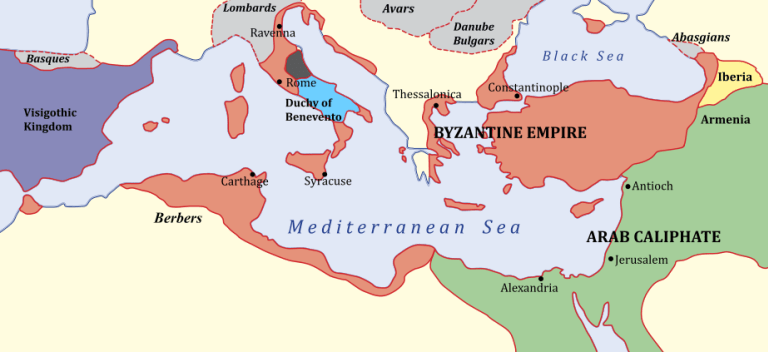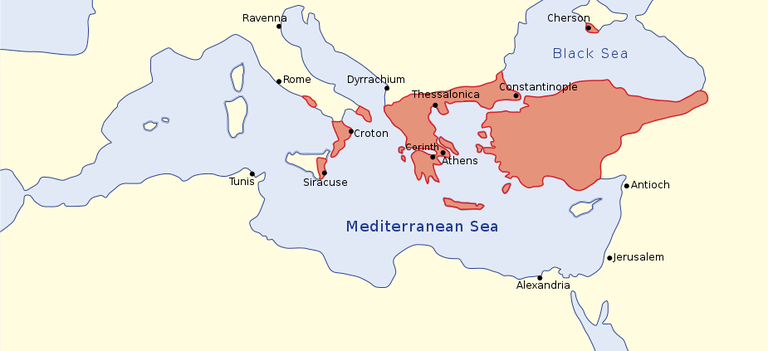Epimetheus
Published on 24 Nov 2018Operation Odysseus Playlist link- https://www.youtube.com/playlist?list…
My Patreon-https://youtu.be/wUmPluCC27Q
Who were the Sea People? and the Bronze Age Collapse
December 15, 2018
Who were the Sea People? Bronze Age Collapse
December 9, 2018
MYSTERIOUS ‘Sea People’ And Their Unknown Origins
Beyond Science
Published on 28 Aug 2017Who were these mysterious sea people?
October 9, 2018
Serbia Before World War 1 I THE GREAT WAR Special
The Great War
Published on 8 Oct 2018Serbia’s recent history before the outbreak of World War 1, was already shaped by internal struggles and external conflicts. It had fought countless wars with neighbors and rivals in changing alliances culminating in the two Balkan Wars 1912 and 1913.
October 2, 2018
Stories From The Palestine Front – More About WW1 Trucks I OUT OF THE ETHER
The Great War
Published on 1 Oct 2018In this episode of Out of the Ether, we read a few excellent comments about WW1 Trucks and the Palestine Front.
September 19, 2018
The Byzantine Empire should really be called the “Medieval Roman Empire”
Sean Gabb makes the case for the least well-known part of the Roman world that outlasted the western empire by a thousand years:
Properly considered, the history of what I will from now call not the Byzantine Empire, but the Mediaeval Roman Empire, is perhaps the most astonishing instance of how courage and determination can keep civilisation alive in the face of the most forbidding and apparently overpowering challenges. In setting out my argument, I hope you will forgive me if I begin with an introduction covering much that many of your will know at least as well as I do, but that may not be so familiar to those reading the text or watching the speech on YouTube.
If you look at the first of the maps that I have put on your tables, you will see the Roman Empire as it was in the year 395 AD. This shows the Empire at something close it its greatest extent. The conquests that Trajan made to the north of the Danube and east of the Euphrates have been given up. But it includes the whole of the Mediterranean World and its various hinterlands – an area stretching from the North of England to Upper Egypt, from Casablanca to Trebizond. In that year, however, nearly a century of political experiments is formally ended with the division of the Empire into two administrative zones. There is the Western or the red Empire, ruled by an Emperor in Rome or Milan or Ravenna. There is the Eastern or the purple Empire, ruled by an Emperor in Constantinople.
If you look at the second map, dated roughly 650 AD, you will see that the Western Empire has disappeared. Excepting North Africa and parts of Italy, now ruled from Constantinople, the whole of the Western Empire has disappeared – replaced by a set of barbarian kingdoms from which modern Europe takes its origin. The Eastern Empire itself has lost both Syria and Egypt to the Arabs.
If you look at the third map, dated roughly 867 AD, you will see that the Empire has suffered the further loss of Cyprus and North Africa and most of Sicily. Nevertheless, what we have in that year should undeniably be called the Mediaeval Roman Empire. It has weathered the storm of the Early Middle Ages. It is the richest and most powerful state in the Mediterranean World. Indeed, during the next few centuries, it will expand. It has already reconquered Greece. It will conquer the Bulgarian Kingdom and re-establish its ancient frontier on the Danube. It will even retake Antioch and make Egypt for a while its economic and diplomatic client.
After 1071, the Empire falls on evil days. In that year, the Turks deprive it of its Anatolian heartland. But this loss is stabilised and in part reversed by a skilful handling of the Crusades. There is another disaster in 1204, when the Venetians take and plunder Constantinople. But this is not the end. The Empire is restored in large parts in 1261; and, even if as little more than a city-state based around Constantinople, it continues to the final Turkish conquest of 1453. Indeed, the formal extinction of the Empire comes nearly a decade after 1453, with the annexation of its last territories in Southern Greece.
There was a time when school textbooks in England dated the fall of the Roman Empire to 476 AD. Its continued survival for a thousand years after then had to be explained, where admitted, by taking a contemptuous view of what was called the Byzantine Empire. See, for example, W.E.H. Lecky:
Of that Byzantine empire, the universal verdict of history is that it constitutes, without a single exception, the most thoroughly base and despicable form that civilization has yet assumed. There has been no other enduring civilization so absolutely destitute of all forms and elements of greatness, and none to which the epithet “mean” may be so emphatically applied… The history of the empire is a monotonous story of the intrigues of priests, eunuchs, and women, of poisonings, of conspiracies, of uniform ingratitude.
Lecky is one of my favourite historians. But, if you look even at the mediaeval Greek and Italian historians of the Empire, you will see that this is a bizarre judgement. Undoubtedly, these historians tended to focus on intrigues in and about the Imperial Palace. But they also record much else. They record the story of a rich and powerful empire, directed with high military and diplomatic ability – an empire in which slavery and the death penalty have been almost abolished, where people lived, and knew that they lived, under a set of divinely-ordained laws that protected life, liberty and property to a degree unknown in any other mediaeval state.
September 14, 2018
The Battle of Saint-Mihiel I THE GREAT WAR – Week 216
The Great War
Published on 13 Sep 2018The American First Army joins the fray on the Western Front with the Battle of Saint-Mihiel. All along the Western Front, the Allies are attacking or planning new attacks. The situation for the Germans looks dire even as the first war reparations from Russia arrive.
August 26, 2018
Italians in AH Army – Military Missions I OUT OF THE TRENCHES
The Great War
Published on 25 Aug 2018Chair of Wisdom Time!
August 24, 2018
Over By Christmas? – Growing Allied Confidence I THE GREAT WAR Week 213
The Great War
Published on 23 Aug 2018Get David Zabecki’s Book about the German 1918 Offensives: http://bit.ly/Zabecki1918
With the recent “Black Day of the German Army” and the success of the new strategy of Allied attacks along the Western Front and with the renewed offensives in Palestine, British Commander Sir Douglas Haig is confident the war can be won by the end of the year. Entente Generalissimo Ferdinand Foch is a bit more cautious but also thinks the war can be won by 1919.
August 16, 2018
Three Great British Wartime Deceptions
Lindybeige
Published on 15 Aug 2018http://www.audible.com/Lindybeige or text ‘Lindybeige’ to 500 500 for a free thirty-day trial and one free audio book.
Support me on Patreon: https://www.patreon.com/LindybeigeTales of Gallipoli and the Dardanelles in World War One, El Alamein in WW2, and of the extraordinarily successful failure that was Operation Camilla in East Africa. One man with terrific hair rambles for over half an hour about ruses of deceit against the enemies of the Empire.
Lindybeige: a channel of archaeology, ancient and medieval warfare, rants, swing dance, travelogues, evolution, and whatever else occurs to me to make.
▼ Follow me…
Twitter: https://twitter.com/Lindybeige I may have some drivel to contribute to the Twittersphere, plus you get notice of uploads.
Facebook: https://www.facebook.com/Lindybeige (it’s a ‘page’ and now seems to be working).
website: http://www.LloydianAspects.co.uk
August 11, 2018
Post-coup Turkey – every move has served to increase Erdoğan’s hold on power
Austin Bay‘s recent essay for Strategika on the post-coup Turkish political situation and its NATO membership:
Ataturk bequeathed Turkey what his greatest biographer, Andrew Mango, called “the structure of a democracy, not of a dictatorship.” He authored an orientation, not an ideology, creating a political, social, and cultural process that he believed would eventually make Turkey capable of perpetual self‐modernization. Ataturk was a political giant and a superb military commander. Eighty years after his death he remains a cult historical and political figure.
President Erdogan is a canny politician and, to be fair, Turkey’s most significant political figure since Ataturk. The green-eyed monster feeds his inner fire; Recep knows he disappears in Kemal’s giant shadow. Not capable of displacing Ataturk the man, he has chosen to replace Ataturk’s state, first under the guise of extending democracy, now behind the façade of maintaining stability. Erdogan also intends to remain in office over twice as long as Ataturk. Turkey 2034 will be an Erdoganist political construct, not Kemalist.
That last paragraph sketches a novelistic interpretation of Erdoğan’s motives. It expands on the answer I gave at Hoover’s October 2017 Military History and Contemporary Conflict symposium after Barry Strauss asked me what I thought drove Erdoğan — the deep drive that might shed light on his long-term vision for Turkey and help us craft policy responses to his challenge.
Novelistic speculations have numerous weaknesses. However, over the decades Erdoğan has supplied plot points and psychologically-indicative dialog. We are able to assess action through time. Early in his career Erdoğan routinely employed Islamist poetry: “Democracy is merely a train that we ride until we reach our destination. Mosques are our military barracks. Minarets are our spears.” That poetry led to his arrest for sedition. After his release he renounced his piously seditious poetry, claiming his fundamentalist views had fundamentally altered. His sudden commitment to Turkish democracy energized his “moderate Islamist” Justice and Development Party’s (AKP) 2002 victory over a tired and corrupted Republican Peoples Party (CHP). In 2003 the AKP became Turkey’s governing party with Erdoğan serving as prime minister.
First he tested Kemal’s structure, then he began to dismantle it. Erdoğan purged the military of suspected political opponents. A cunning narrative camouflaged his operation. He claimed European Union accession rules demanded he strip the military of its political powers and make certain Kemalist military coups entered history’s dustbin. Sometime in 2008, as Erdoğan began pursuing the Ergenekon conspiracy of “secular fundamentalists” and other secret nationalist vigilante organizations, I finally realized whatever explanation du jour Erdoğan offered for his actions, the dismantling scheme always expanded his personal power and influence.
The bizarre July 2016 coup follows the same pattern. The Turkish people defeated the coup. Ironically, Erdoğan remains in office today because Turkish citizens (across Turkey’s complex political and ethnic spectrum) courageously defended their hard-won democracy — a democracy nine challenging decades in the making. In its aftermath, however, Erdogan used emergency powers to purge Gulenist Islamists and his political opponents. He dismantled elements of the democratic system that saved him and his government.
August 10, 2018
The Black Day Of The German Army – The Battle of Amiens I THE GREAT WAR Week 211
The Great War
Published on 9 Aug 2018Ludendorff and his generals didn’t think the Allies had it in them, but this week they attack with the might off several hundred tanks near Amiens, the Black Day of the German Army.
August 3, 2018
QotD: The lost kingdom of Pontus
Pontus is that country, within modern Turkey, that follows the south-east Black Sea shore, and inland is enclosed as by an amphitheatre of mountains. It is the more interesting, archaeologically, for having been often by-passed, in the movements of conquering nomads and armies, from Hittites and Hurrians to Arabs and Turks. The Greeks took it, because they came by sea. They kept it, till late in the day; so that even after Constantinople fell to our short-sighted Franks (in 1204), the Empire of Trebizond immediately formed, and Byzantium persisted in Pontus, as in Crimea and elsewhere, until it could be restored at its centre.
David Warren, “A wonderworker”, Essays in Idleness, 2016-11-17.
July 6, 2018
The First Modern Battle – The Battle of Hamel I THE GREAT WAR Week 206
The Great War
Published on 5 Jul 2018Meet us at the Tank Museum: http://bit.ly/TankMuseumFanMeeting
The Battle of Hamel is considered as the first modern battle. Masterminded by Australian general John Monash, it included meticulous planning and integrated tanks, artillery, airplanes and infantry into one cohesive strategy.
June 10, 2018
The Landings At Cape Helles 1915 I THE GREAT WAR On The Road
The Great War
Published on 9 Jun 2018Thank you to Mr Ali Serim for making this trip possible.
Indy and our guide Can Balcioglu explore the southern tip of Gallipoli where the British Army landed in April 1915.
June 8, 2018
The Battle of Belleau Wood Begins I THE GREAT WAR Week 202
The Great War
Published on 7 Jun 2018The German Army is still threatening Paris and the situation for the Allies looks dire. Reluctantly, General Pershing agrees to put some of the American troops into action at Belleau Wood and Château-Thierry.






